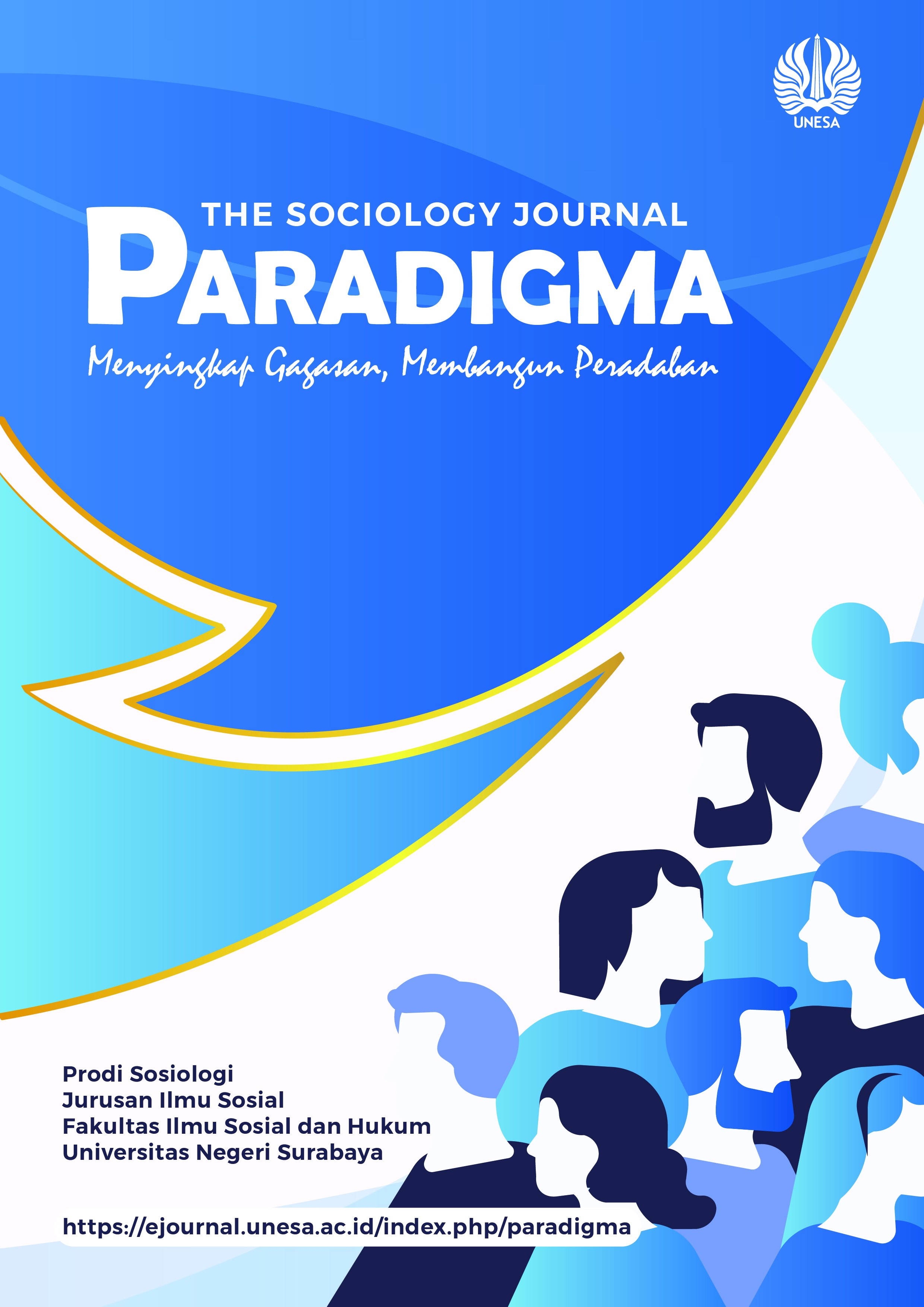Konstruksi Masyarakat Tentang Perilaku Gantung Diri
Downloads
Download data is not yet available.
Downloads
Published
2024-04-24
How to Cite
Putri, I. E. E. (2024). Konstruksi Masyarakat Tentang Perilaku Gantung Diri. Paradigma, 13(1), 51–60. Retrieved from https://ejournal.unesa.ac.id/index.php/paradigma/article/view/59273
Issue
Section
Articles
 Abstract views: 72
,
Abstract views: 72
, PDF Downloads: 326
PDF Downloads: 326


